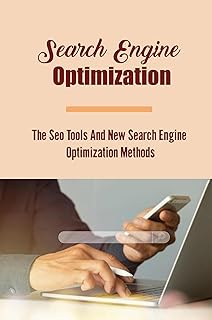Zero-click searches are reshaping the online landscape, with snippets and AI-generated overviews satisfying user queries directly on search result pages. This trend, now dominating up to 69% of searches, challenges marketers to adapt their SEO strategies to ensure visibility in SERPs. Marketers are increasingly focusing on enhancing authority and user trust through innovative approaches.
The rise of zero-click searches signifies a shift in how users engage with search engines. This change, driven by advancements in AI, necessitates a reevaluation of traditional SEO practices. As zero-click searches become more prevalent, brands are compelled to optimize for direct-answer formats, emphasizing concise and authoritative content structured for search engine visibility.
Brands are now prioritizing featured snippets and other direct-answer formats to enhance visibility in search results. By tailoring content for these formats, marketers can ensure their information is prominently displayed, even without users clicking through to their websites. This shift reflects a broader trend where user engagement occurs within search interfaces, challenging the traditional emphasis on click-through rates.
To counter the challenges posed by zero-click searches, SEO strategies are evolving to incorporate E-A-T principles—expertise, authoritativeness, and trustworthiness. By focusing on multi-platform visibility and optimizing for AI summaries, brands can adapt to the changing search landscape and enhance their online presence.
Local SEO is particularly impacted by zero-click results, with businesses needing to optimize their Google My Business profiles to capture visibility in map packs and knowledge graphs. While this shift presents challenges such as declining referral traffic, it also offers opportunities for brands to establish authority directly within SERPs, fostering trust and potentially driving direct traffic in the long term.
Looking ahead, the integration of AI in search is expected to accelerate, with SEO likely prioritizing answer optimization over traditional link-building strategies. Media agencies are already adjusting their paid search tactics in response to zero-click signals, highlighting the need for a holistic approach that diversifies beyond Google and leverages emerging AI tools for content creation.
Despite the disruptions caused by zero-click searches, they also signal a more efficient information ecosystem that rewards innovation in visibility and user satisfaction. By adapting to user behaviors shaped by zero-click trends and emphasizing structured content that dominates AI responses, brands can position themselves for success in the evolving search landscape.
📰 Related Articles
- SEO Experts Adapt Strategies for AI-Driven Search Evolution
- Brands Adapt SEO Strategies for AI-Powered Search Success
- AI Experts Advise Marketers on SEO Strategies for Search Evolution
- Publishers Adapt SEO Strategies Amid Google’s AI Overviews Impact
- How Google’s AI Overviews Impact Search SEO Strategies





